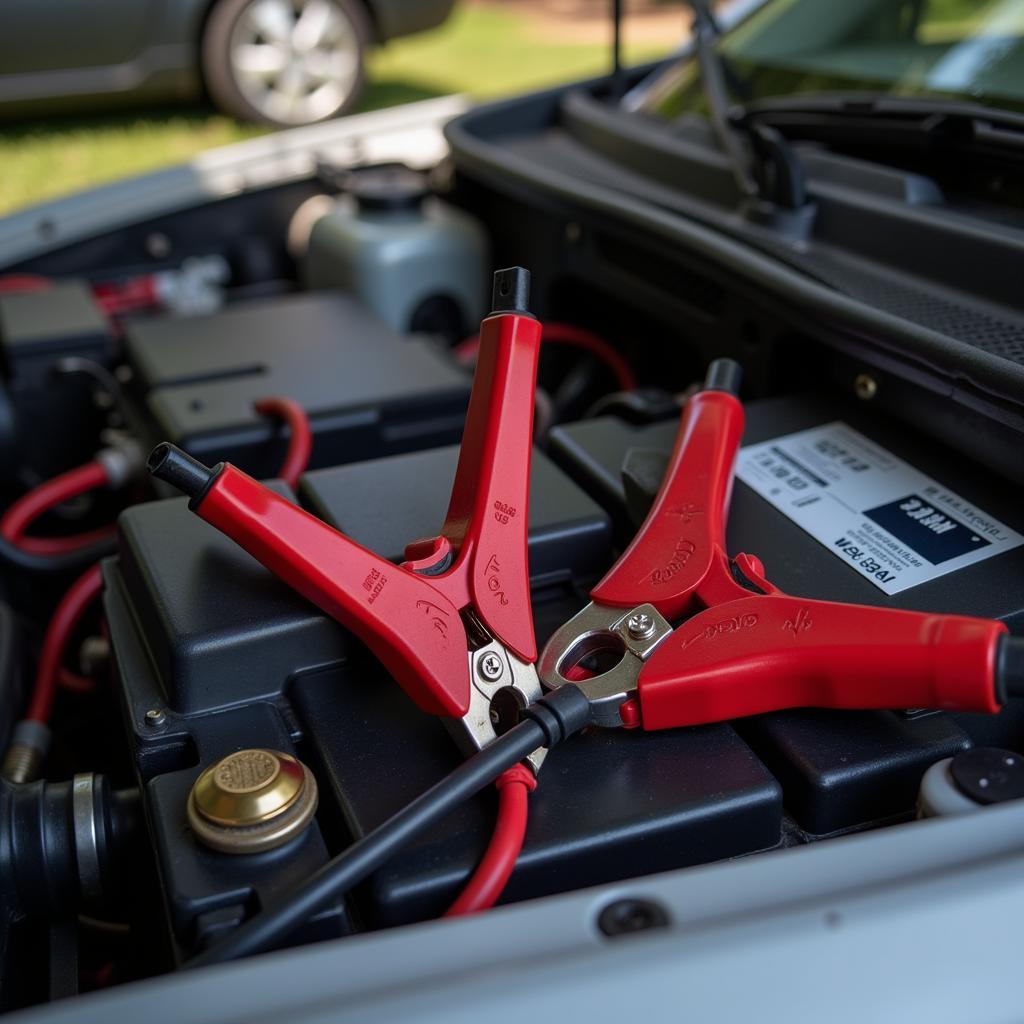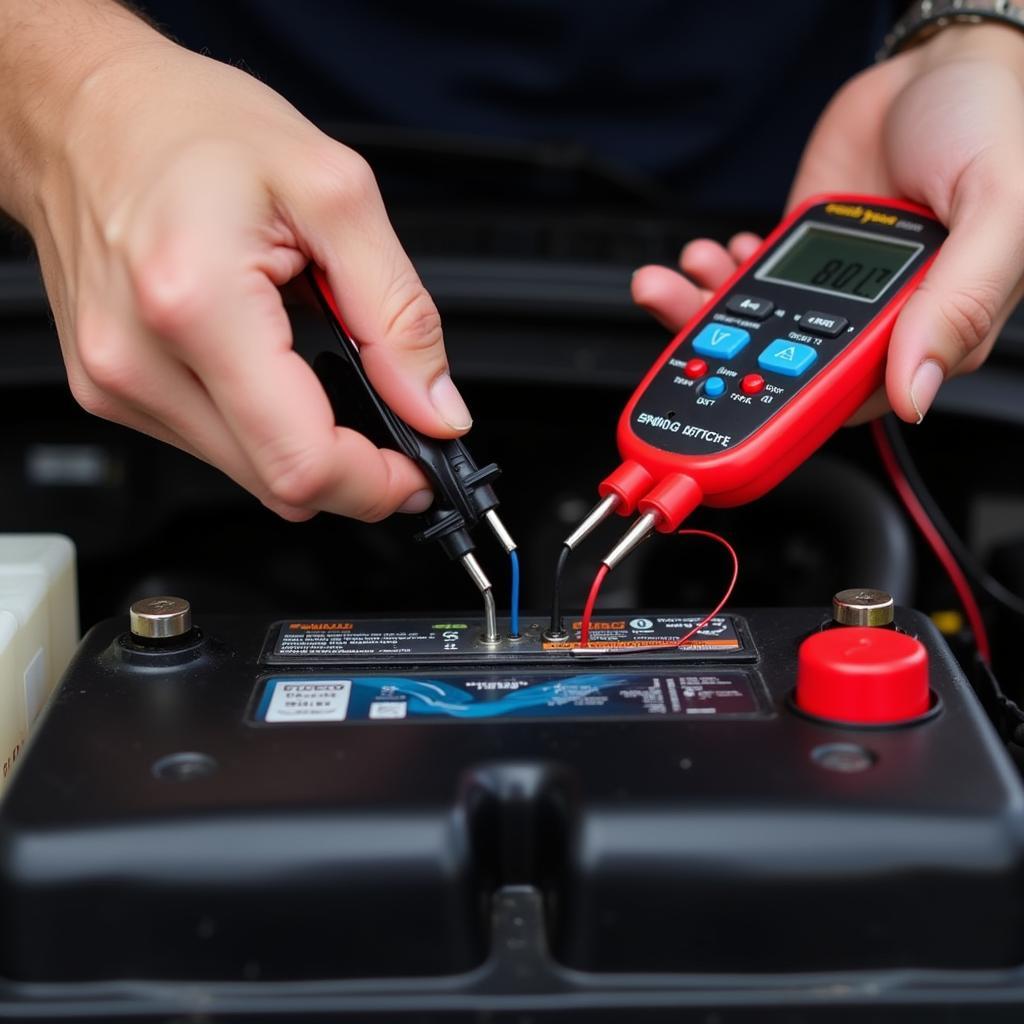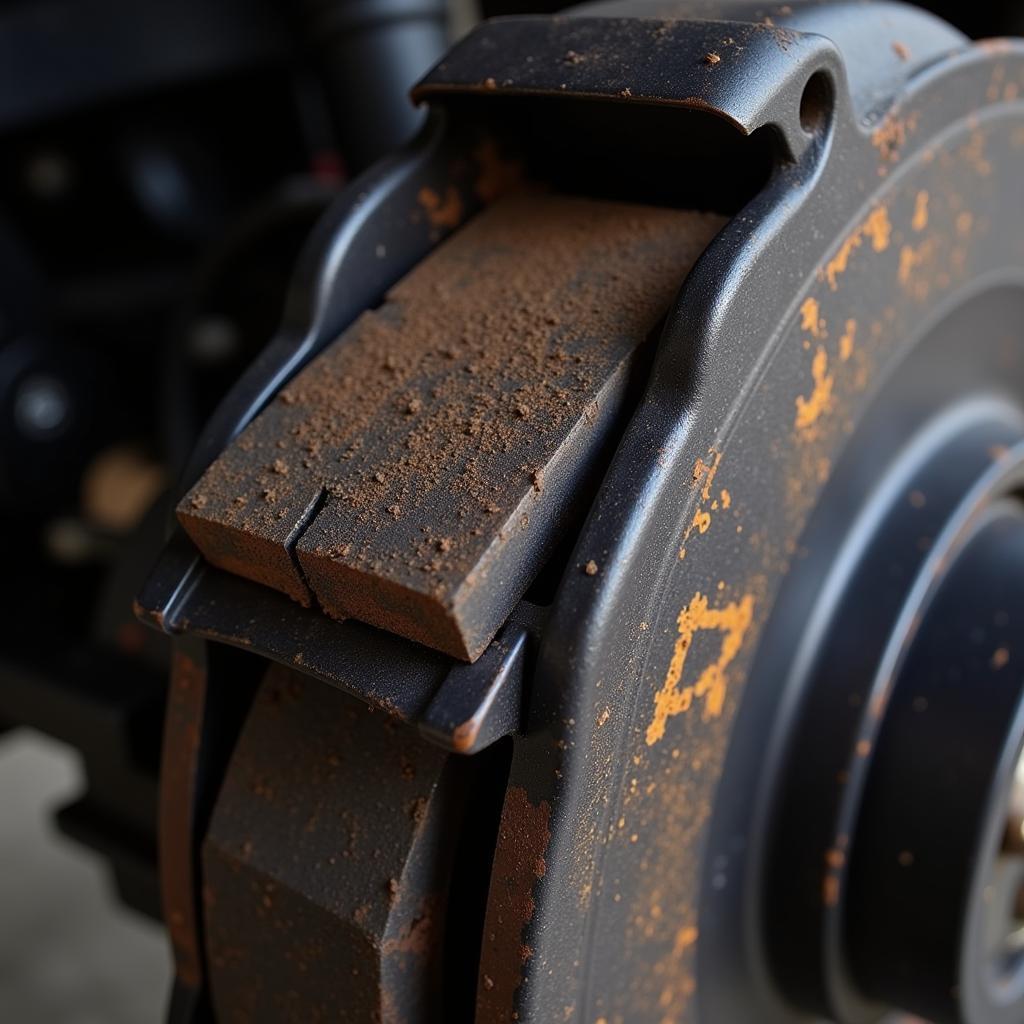Your car battery died while parked? It’s a frustrating situation, but understanding why it happened and how to fix it can save you time, money, and future headaches. This guide dives deep into the common causes of a dead car battery after parking and provides practical solutions, from jump-starting to long-term preventative measures.
It’s important to first identify the underlying cause of your dead battery. A simple jump-start might get you going temporarily, but without addressing the root issue, you’re likely to face the same problem again. This could be anything from a faulty alternator to parasitic drain, even an old battery simply reaching the end of its lifespan.
Why Does My Car Battery Die While Parked?
Several culprits can drain your car battery while it’s parked. Let’s explore some of the most common reasons:
- Parasitic Drain: Even when your car is off, certain electrical components continue to draw power, like the clock, radio memory, and alarm system. A malfunctioning component or a faulty wiring connection can cause excessive drain, leading to a dead battery.
- Faulty Alternator: The alternator recharges the battery while the engine is running. If it’s not functioning correctly, the battery won’t receive the charge it needs, eventually dying even when parked.
- Extreme Temperatures: Both extreme heat and extreme cold can negatively impact battery performance. Heat can accelerate internal battery corrosion, while cold can slow down chemical reactions within the battery, reducing its capacity.
- Old Battery: Car batteries have a limited lifespan, typically 3-5 years. As a battery ages, its ability to hold a charge diminishes, making it more susceptible to dying, especially if left unused for extended periods.
- Leaving Lights On: This might seem obvious, but accidentally leaving interior lights, headlights, or even hazard lights on can quickly drain a car battery.
 Car Battery Died While Parked: Jumper Cables Connected
Car Battery Died While Parked: Jumper Cables Connected
How to Diagnose a Dead Car Battery
Knowing how to diagnose the issue can help you pinpoint the problem and determine the appropriate solution. Here’s a step-by-step guide:
- Jump-Start the Car: If the car starts after a jump-start, it suggests the battery is the likely issue. restoring-a-dead-car-battery explains more on how to jump start your car safely.
- Test the Alternator: After jump-starting, disconnect the positive jumper cable. If the car stalls, it indicates a problem with the alternator.
- Check for Parasitic Drain: With the engine off and all accessories turned off, use a multimeter to measure the current draw between the negative battery terminal and the negative battery cable. A reading above 50 milliamps suggests a parasitic drain. car battery going dead signs can guide you on other potential issues.
- Inspect the Battery: Look for any signs of physical damage, corrosion, or leaks on the battery.
“A simple voltage test can tell you a lot about your battery’s health,” says automotive electrical engineer, David Miller. “If the voltage is below 12.4 volts with the engine off, it’s a strong indication that the battery needs to be charged or replaced.”
 Testing Car Battery with Multimeter
Testing Car Battery with Multimeter
Solutions for a Dead Car Battery
Once you’ve identified the cause, here are some potential solutions:
- Jump-Starting: This is a temporary fix to get your car running. Be sure to follow proper jump-starting procedures to avoid damage.
- Battery Charging: If the battery is simply discharged, charging it with a battery charger can restore its power. charging-a-totally-dead-battery discusses this process in detail.
- Battery Replacement: If the battery is old or damaged, replacement is the best option.
- Alternator Repair/Replacement: If the alternator is faulty, it needs to be repaired or replaced by a qualified mechanic.
- Addressing Parasitic Drain: Identifying and fixing the source of the parasitic drain is crucial to prevent future battery problems. This might involve replacing a faulty component or repairing a wiring issue. new battery died overnight offers advice if this occurs after replacing your battery.
“Don’t underestimate the importance of regular battery maintenance,” advises Sarah Chen, an automotive technician. “Keeping the terminals clean and free of corrosion can significantly extend the life of your battery.”
Preventing Future Battery Problems
Here are some proactive steps to help prevent your car battery from dying while parked:
- Regular Battery Testing: Test your battery voltage every few months, especially during extreme temperatures.
- Clean Battery Terminals: Keep the battery terminals clean and free of corrosion by using a wire brush and a baking soda and water solution.
- Limit Short Trips: Short trips don’t give the alternator enough time to fully recharge the battery.
- Turn Off All Accessories: Make sure all lights, radio, and other accessories are turned off before exiting the car.
- Consider a Battery Maintainer: If you don’t drive your car frequently, a battery maintainer can help keep the battery charged. car battery loses charge overnight provides further details if you experience this regularly.
Conclusion
A car battery dying while parked can be a nuisance, but by understanding the potential causes and taking proactive steps, you can avoid this frustration. Remember to diagnose the problem accurately and address the root cause to ensure a reliable and long-lasting battery. Regular maintenance and preventative measures are key to keeping your car battery healthy and avoiding unexpected breakdowns.
FAQ
-
How long can a car battery sit unused before it dies? This depends on the battery’s age, condition, and the ambient temperature. Generally, a healthy battery can last for several weeks or even a couple of months, but an older or weaker battery might die within a few days.
-
Can a car battery die while driving? Yes, if the alternator fails, the battery will eventually die while driving, as it won’t be recharged.
-
How can I tell if my alternator is bad? Common signs of a bad alternator include dimming headlights, flickering dashboard lights, and a whining noise coming from the engine compartment.
-
Is it safe to jump-start a car? Yes, as long as you follow the proper safety procedures and connect the jumper cables correctly.
-
How much does a new car battery cost? The price of a new car battery varies depending on the type, size, and brand, but typically ranges from $50 to $200.
-
How often should I replace my car battery? Most car batteries have a lifespan of 3-5 years.
-
Can I drive my car after jump-starting it? Yes, but it’s important to let the engine run for at least 30 minutes to allow the alternator to recharge the battery.

